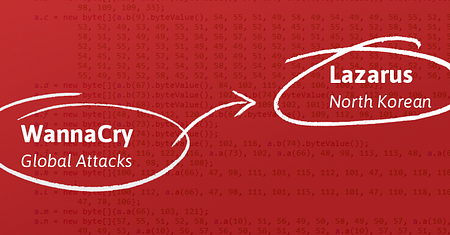— -5 actionable tips that work for all — -

Using an internet connection without a VPN in place has its shortcomings. Ranging from security issues to data throttling and data selling without consent, using a VPN to overcome these threats while online has become increasingly popular nowadays. It is safe to say that VPNs are a thing of mainstream culture today, rather than an exotic tool for all the right reasons.
A few years ago, adopting a VPNwas not the simplest of tasks for IT managers for a number of reasons which included: deployment, compatibility or interoperability issues and the expense of these systems. Things have changed. VPNs are now entering the mainstream, and many companies view them as a telecommunications necessity from both security and cost perspectives.
Originally designed to reduce the costs of connecting branch offices to the main office of a business, VPNs addressed the concern of high costs of leased lines and dedicated connections. The next matter-of-course step was to adapt VPNs to individual remote use, for internal network access and secure operations across the internet.
Widely used by companies to protect corporate data, Virtual Private Networks took over the personal data arena, as well, to such a degree that the use of a VPN has become an almost inalienable, “basic right”, for virtually any kind of private data exposed to the internet.
Beyond connectivity a VPN implicitly means that a secure bridge has been created between any given device using that connection and your business server and that can be on your premises or in the cloud.
FEATURES TO LOOK FOR:

However, there is still a level of abstract that goes into a VPN connection, especially the ones designed via cloud, since it’s an intangible product and often little know in terms of what aVPN connection should offer as features. As VPN providers ourselves we listed some of the most important features that make the whole VPN concept a bit more streamlined. When choosing a VPN provider we also recommend reading reviews for specific feed back from people who already tried that VPN app.
* ENCRYPTION*
They say that a VPN is only as good as its encryption capabilities, but encryption in itself is not the simplest of topics. The terminology used to determine how secure a VPN connection is, can get very confusing, very quickly.
OPEN VPN CYPHERS
AES- 128, the Open VPN Cipher used by My IP.io, remains secure as far as the AES in general is regarded (AES stands for Advanced Encryption Standard- right above AES-128 is the 256-bit keys — also known as the AES-256, which is basically the same encryption standard adopted by the U.S. government and used by security experts worldwide to protect classified information.)
The mathematics of the 128 bit AES goes to show that a billion billion years are required and a supercomputer for a brute force attack to crack it. With this in mind we say that 128 is pretty impressive on its own.
PPP
In a remote- access VPN, tunneling typically relies on Point-to-point Protocol (PPP). When searching for VPN apps you should come across one of these three protocols based on PPP:
- L2F (Layer 2 Forwarding) — Developed by Cisco; uses any authentication scheme supported by PPP;
- PPTP (Point-to-point Tunneling Protocol) — Supports 40-bit and 128-bit encryption and any authentication scheme supported by PPP;
- L2TP (Layer 2 Tunneling Protocol) — Combines features of PPTP and L2F and fully supports IPSec; also applicable in site-to-site VPNs

SECURE SHELL — SSH
SSH, also known as Secure Socket Shell, is a network protocol that provides administrators with a secure way to access a remote computer. SSH also refers to the suite of three utilities that implement the protocol: — slogin, ssh, and scp — that are secure versions of the earlier UNIX utilities, rlogin, rsh, and rcp.
My IP.io comes bundled with a variety of VPN encryptionprotocols, supporting all the latest security protocols including SSTP, PPTP, IPSec, L2TP, SSTP and 128bit –AES, OpenVPN cipher.
*AUTO-RECONNECT AND PORT FORWARDING*
One exciting feature is also port forwarding that enables you to connect to considerably more seeds/peers. The disadvantage of port forwarding is having an open port in your firewall, which always carries some security risk, so as a rule, it is best to have as few ports open as possible.
*TRANSPARENCY*
Always go with the VPN provider that is most transparent about things like: logging and the privacy policy they have in place.
*KILL SWITCH*
This is a feature that will make sure your IP Address isn’t accidentally exposed in case of a dropped connection with the VPN server. It can react virtually instantly, block your internet connection before your computer has a change to reconnect to the internet outside of your secure VPN tunnel.
*LOCATION SWITCH*
If you are more of the globetrotter typology than the security oriented one or a combination of both, then watching the Olympics live while they happen is a thing for you. For bypassing geo restrictions that your local networks might have for remote gaming or remote working, or listening to location-restricted streaming internet radio a good VPN means a location diverse server list you can chose from.
Geared with brand new locations from California to Florida, from United Kingdom to Germany or Australia to Japan, My IP.io comes with brand new locations to chose from.
Introducing a much more location diverse dedicated VPN service, our latest server acquisitions are located in:
- USA California
- USA Oregon
- USA Ohio
- USA North Virginia
- USA Florida
- Brazil
- United Kingdom
- Germany
- Australia
- India
- South Korea
- Singapore
- Japan
Now that you know how to address the “location” aspect of a VPN, remember that My IP’s latest server locations were hand-picked to deliver the most reliable speed. We continuously update our server locations by analyzing numerous data points, among which: Connection success rate, Customer usage and Speed.
*SPEED*
It is a known fact that major mobile network operators purposely curtail the speed of your connection in order to limit the amount of data you consume. Sometimes as low as 32 kbps.
Using a VPN hides the kind of traffic you’re using, so ISPs can’t discriminate against high-bandwith ones — Netflix and possibly other streaming services like Hulu or YouTube can fall into the same category. Major companies like Verizon or Comcast have previously used these practices.
When choosing a location it is also important to check things like: Speed Index, Latency, and Download Speed, as these are all important factors.
This is what they mean:
Speed Index: shows how fast the VPN server is; the higher the number, the better the server.
Download Speed: it tells you how fast your VPN server is able to download information; also the higher, the better.
Latency: it’s the time it takes for a data packet to go from your device to reach the VPN.
You can also check the speed of your VPN here.
All in all, we can’t really imagine or sometimes even function outside the online paradigm, from accessing sensitive data at work, to hailing a cab, to social media, to online shopping, we’re putting a lot of corporate or personal data out there in what has become a too easy to be felt routine.
All this data is subjected to government snoop, hacking and “hacktivism” and evensimple browsing can be susceptible to data trawling. You don’t have to be a security advocate to understand the necessity of using a VPN while online, but simply a privacy minded person in a strictly monitored environment or in a completely open one, it makes no difference, really.

My IP.io, the platform of choice for many agile businesses, trusted brand by thousands of happy business owners.
MyIP.io is a self-managed VPNnetwork platform, delivering fast, secure and reliable VPN service , designed with the professional focus in mind. Our platform caters to a wide demographic through three channeled directions:Personal,Dedicated and Business, so it makes for a wonderful choice for corporate or personal use at the same time.
Engineered as a global platform,MyIP.io is a VPN service provider committed to developing applications and services that preserve an open and secure Internet experience while respecting user privacy.








